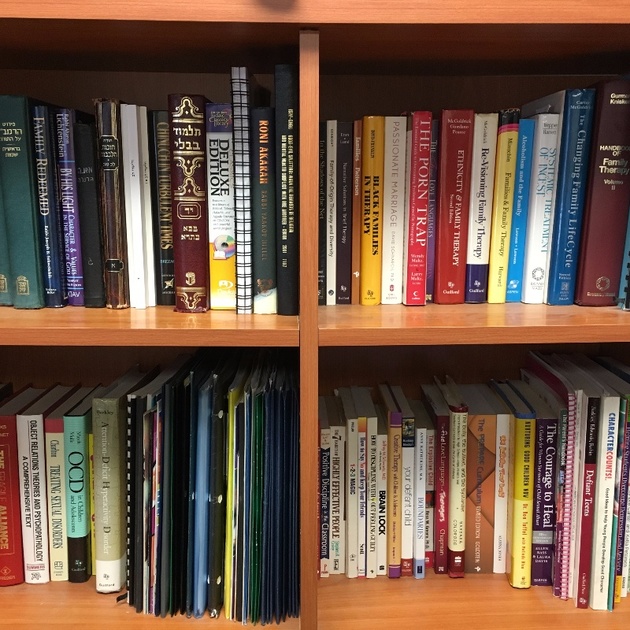
A few days ago, my youngest son celebrated his Bo Ba’yom – that is the very day of his becoming Bar Mitzvah. His mother and I braved sub-zero wind chills, showed up at the Yeshiva he attends and joined him, his classmates and his Rebbeim. There was a modest spread waiting for us.
One Rebbi asked me if I was planning to speak. I noted that the printed protocol for these celebrations made no mention of parents speaking – only of his Rebbi speaking. All the same, I accepted the invitation to speak. I pretty much knew what I wanted to say.
Some background is in order. The Menahalim/administrators of my son’s Yeshiva have, particularly of late, been trying to instill a greater appreciation for the majesty of Torah and for the dignity and decorum that Davening (prayer) deserves. They aim to help their students achieve an overarching respect for the value of religious growth and a personal investment in their own growth.
These are admirable, yet lofty goals – particularly for a groups of kids who may be more passionate about Madden Mobile (a football video game) than about Mitzvos and Ma’asim Tovim (commandments and good deeds). Not surprisingly, I am one of a number of parents who has been called in to meet with the new principal to discuss why our children are not yet fully on board with the school mission.
Back to the celebration. Following the intuitive and inspiring words of my son’s Rebbi and some hearty singing, I was introduced to the class. I noted that I was going to draw a lesson from a portion of the Torah that is read at a time of year about which, at present, we can only dream.
As summer approaches and the school year draws to a close, we read Parshas Beha’aloscha (found in the Book of Bamidbar/Numbers). Something unique, about this Torah portion, is the presence of two inverted Nuns. (Here, I am referring to the Hebrew letter – ื .) Chazal – the Rabbis of the Talmud – teach us that the Nuns were inserted with the intention of separating between (and, hopefully, mitigating) two punishment-worthy events. The latter event is clear enough. We read of how the masses complained – essentially whined – to Moshe about the Mannah: “It’s not tasty enough. It comes with strings attached etc.” This is a cut and dry example of ingratitude and entitlement.
What is less clear is the nature of the misdeed that the Jewish people had committed prior to this. What the Torah does tell us is that, after an extended period of encampment at Mount Sinai, the Jews traveled toward the Desert of Paran. The Rabbis of the Talmud flesh out the narrative and explain that what was problematic, in this instance, was attitude: They explain that the Jewish people left Sinai – the very place where they received and first studied the Torah – ืืชืื ืืง ืืืืจื ืืืืช ืืกืคืจ¨ – like a child running away from (a recently concluded) school (session).
I remember well this derivation of Chazal. Every year, from 5th grade onwards, our teachers would call an end of year assembly. There, they would cite this teaching and remind us that running away from school is punishment-worthy, that we needed to start thinking less about escaping and more about how to extend the learning of the school year into the summer months. And every year, almost immediately after the conclusion of the assembly, we would shoot out the doors of the school, as if pursued by demons. The furthest thing from our minds, at that moment, was learning more Torah.
For years, I felt a sense of disconnection, certainly from the admonitions of my Rebbeim/teachers, but even from the very words of Chazal. True, as I got older, learning did become more important to me, and I started looking at summer Torah study, in a very different manner. Still, what was there to say about our shameful behavior, over the earlier years?
Then it hit me: The Jewish people were punishment-worthy, because they were already adults, but, in running away from Sinai and all it represents, they were acting as though they were children. We expect more of adults; what about actual children? If anything, those who are still children are supposed to (or, at least, expected to) run away from school, when it ends. After all, the Rabbis of the Talmud use the simile: ืืชืื ืืง ืืืืจื ืืืืช ืืกืคืจ¨ – like a child running away from school.
Developmentally, a child who runs away from Yeshiva is right where he is supposed to be. Think about it: Torah study can be quite daunting. The stories are not always all that easy to digest. The laws seem to pivot and hinge on the most subtle of details. The words of the Talmud seem to be filled with contradiction. Clarity is, at best, elusive.
So what relevance do the words of Chazal, about the Jewish people shooting out of Sinai, have for middle schoolers? I paused and noted that exactly 13 years, minus 8 days prior, at my son’s Bris, a learned and saintly man blessed my son and proclaimed: "ืื ืืงืื ืืืื ืืืื” – May this child (literally, small one) become an adult (literally, a big one). My wish too, for my son and all his classmates, and for the Rebbeim and parents who guide them, is that – at a pace that is appropriate for each of them – they mature and begin to discover the depth, meaning and wisdom hiding just beneath the surface of the Torah’s words.
For some children this will happen sooner, for others it will happen a little later, for yet others, it may be many years before they transition from Kattan to Gadol, from youth to adult, from confounded and (dare I say) bored child rocketing out the doors of school, to mature young men and women who are moved and inspired by Torah study and who can’t get enough of it. (End of speech. Yes, my son and some of his classmates were, by then, already starting to fidget.)
The take-home for us, in our roles as therapists and teachers, parents and mentors, is that it is normal and even healthy for most every child to want to run away from school. Our job is not to brand them as “Chuztpahdik/intransigent, not to “ride” them tough, until they toe the line, not to overburden them with guilt. We should even avoid incentivizing long, arduous Torah projects with incredibly expensive prizes – ones that create pressure cookers for the minds of children who can’t yet focus on study for that long, but can’t say no to the prospect of owning a brand new laptop.
Here’s what we can do: Recognize and appreciate where our children are, at present. Treat all their questions about the Torah with dignity, even the questions that seem like they have an edge to them. Accept that it is normal for most children to get jumpy, after more than 30 minutes of focused study. Consider which school expectations are currently beyond their skill set and maturity level.
We can then help them chart out where they can be, as they start to mature. Discuss the Laws of Torah study and prayer and gently invite them to aim, over time, for fuller observance. Be open to sharing – judiciously, of course – our own journeys toward greater observance. Help them construct a reasonable time table toward abiding by a fuller range of their school’s rules. (Be in communication with their teachers and principals, on this.)
Ultimately, we are supporting their very process of maturing, from being Kettanim/children to becoming Gedolim/adults, and fulfilling the blessings they received right about when they were born.
 Previous
Previous

